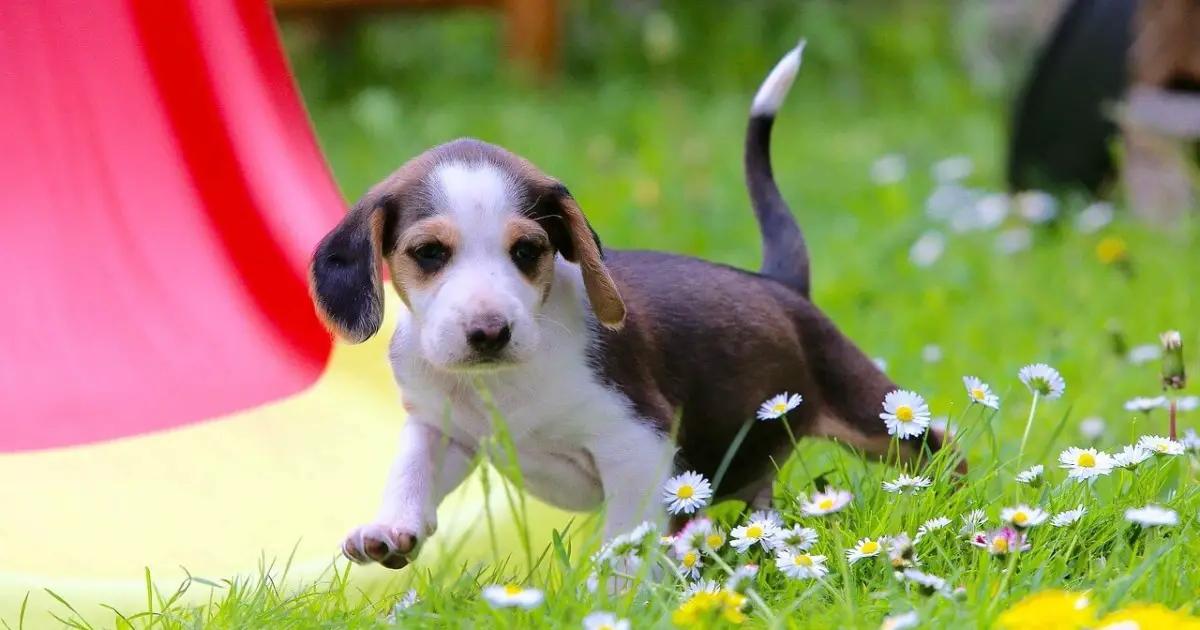- Breed Category: Hound
- Country of Origin: Germany
- Average Height: 40-53 cm (15.7-20.9 in)
- Average Weight: 20-25 kg (44-55 lbs)
- Average Life Span: 10-12 years
- Grooming Requirements: Low, occasional brushing
- Exercise Requirements: High, needs daily exercise
- Coat Type: Short and dense
- Coat Color Variations: Black, tan, red
- Shedding Level: Moderate
- Ear Type: Long and floppy
- Tail Type: Long and straight
- Temperament: Friendly, intelligent, alert
- Intelligence Level: High
- Barking Tendency: Moderate
- Compatibility with Children: Good with supervision
- Compatibility with Other Pets: Generally good
- Training Ease: Moderate, requires patience
- Common Health Issues: Hip dysplasia, ear infections
- Dietary Needs: High-quality dog food
- Energy Level: High
- Drooling Tendency: Low
- Sensitivity to Weather: Sensitive to cold
- Overall Maintenance Level: Moderate
- Original Purpose: Hunting and tracking
- Year of Recognition by Kennel Clubs: 1960
- Apartment Friendly: Not ideal, needs space
- Best Suited For: Active families, hunters
- Cost of Ownership: Moderate
- Unique Traits: Excellent scent tracking ability
Ever found yourself wondering which dog breed would fit perfectly into your lifestyle? Choosing the right one can be a bit of a puzzle. Enter the German Hound, a breed that might just tick all your boxes. Known for their keen sense of smell and friendly nature, these dogs are a delight for those who appreciate a good hunting companion or a loyal family pet.
The purpose of this article is to give you a closer look at the German Hound’s unique characteristics, rich history, and how best to care for them. Originating from Germany, this breed has a storied past, tracing back to the 19th century. They were primarily bred for hunting, showcasing their impressive tracking abilities and endurance.
Early Development and Historical Significance

Early Development of the Breed
The German Hound, or Deutsche Bracke, has roots that stretch back to the 19th century. This breed was developed with a focus on creating a dog that excelled in tracking and hunting. Breeders aimed to combine the best traits of local hounds, resulting in a dog with a keen nose and remarkable stamina. The German Hound was specifically designed to navigate the varied terrains of Germany, from dense forests to open fields.
Role in German Hunting Traditions
In Germany, hunting is more than a pastime; it’s a tradition. The German Hound played a crucial role in this cultural practice. Known for their ability to track game over long distances, these dogs were indispensable to hunters. Their sharp senses and unwavering determination made them ideal companions in the field, ensuring successful hunts.
Key Historical Figures
Several key figures were instrumental in the development of the German Hound. Notably, Baron von Zedlitz and Count von Hahn were pivotal in refining the breed. Their dedication to breeding a dog that could meet the demands of German hunters was crucial in establishing the German Hound’s reputation.
Physical Characteristics
German Hounds are medium-sized dogs, typically weighing between 16 to 20 kilograms. They have a sleek, athletic build, with a short, dense coat that comes in a variety of colours, often featuring a distinctive tricolour pattern. Their long ears and expressive eyes give them a gentle appearance, while their muscular frame hints at their strength and agility.
Appearance and Unique Traits
German Hounds are a sight to behold. Medium-sized and weighing between 16 to 20 kilograms, they boast a sleek, athletic build. Their coat is short and dense, often showcasing a striking tricolour pattern that makes them stand out. Those long, floppy ears and expressive eyes give them a gentle, approachable look, but don’t be fooled—these dogs are built for action. Their muscular frame hints at the strength and agility that lies beneath.
One of the standout features of the German Hound is their keen sense of smell. This trait is not just for show; it’s a vital part of their hunting prowess. They can track scents over long distances, making them exceptional companions for those who enjoy outdoor adventures.
Temperament and Behaviour
When it comes to temperament, German Hounds are known for their friendly and sociable nature. They thrive on companionship and are great with families. These dogs are not just about work; they love playtime and are always up for a game. Their intelligence and eagerness to please make them relatively easy to train, though they do have an independent streak. It’s this blend of traits that makes them both reliable hunting partners and loving family pets.
Personality Traits and Suitability
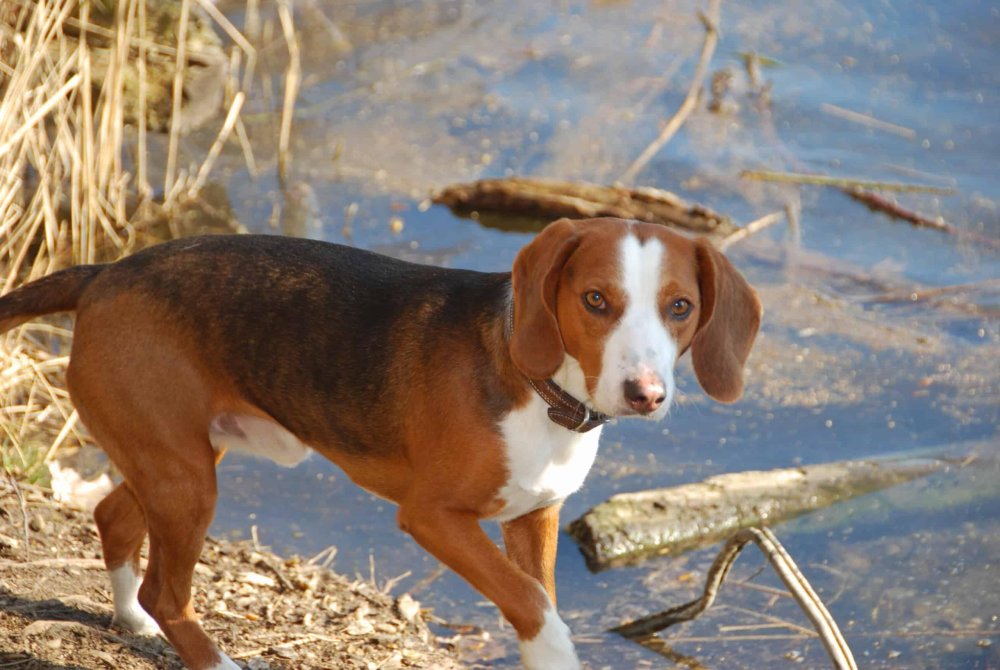
Typical Personality Traits
German Hounds are known for their loyalty and intelligence. They form strong bonds with their families and are always eager to learn new things. Their energy levels are high, making them perfect for active households. These dogs are not just about lounging around; they thrive on activity and mental stimulation.
Suitability as a Family Pet and Hunting Companion
As family pets, German Hounds are a fantastic choice. Their friendly nature makes them great companions for both adults and kids. They’re also excellent hunting partners, thanks to their keen sense of smell and endurance. Whether you’re looking for a pet to join your family or a reliable hunting buddy, the German Hound fits the bill.
Interaction with Children and Other Animals
German Hounds are generally good with children, displaying patience and playfulness. They get along well with other animals too, especially if socialised from a young age. Their sociable nature means they enjoy being part of a pack, whether it’s human or canine.
Training and Exercise Needs
Training a German Hound is usually straightforward due to their intelligence and eagerness to please. However, they do have an independent streak, so consistent training is key. Regular exercise is essential to keep them happy and healthy. Long walks, playtime, and mental challenges are all part of their ideal routine.
Training, Exercise, and Health

Importance of Early Training and Socialisation
Getting a head start on training and socialisation is crucial for German Hounds. Early exposure to different environments, people, and other animals helps them grow into well-rounded adults. This breed is naturally friendly, but early socialisation ensures they remain confident and adaptable in various situations.
Recommended Training Techniques
Positive reinforcement is the way to go with German Hounds. They respond well to treats, praise, and play as rewards. Consistency is key, as their independent streak can sometimes lead to stubbornness. Short, engaging training sessions work best to keep their attention and enthusiasm high.
Daily Exercise Requirements and Activities They Enjoy
German Hounds are active dogs that need plenty of exercise to stay happy and healthy. Daily walks, runs, or hikes are ideal. They also enjoy games like fetch or scent-based activities that tap into their natural hunting instincts. Keeping them physically and mentally stimulated is essential.
Health and Lifespan
Generally healthy, German Hounds have a lifespan of around 12 to 14 years. Regular vet check-ups, a balanced diet, and plenty of exercise contribute to their longevity. Like all breeds, they can be prone to certain health issues, so staying informed and proactive about their health is important.
Health and Care for German Hounds
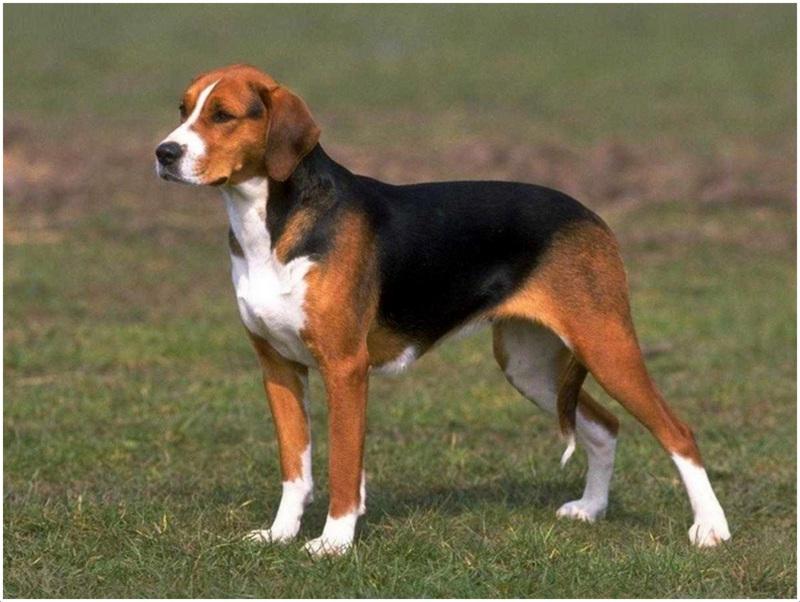
Common Health Issues
German Hounds are generally robust, but like any breed, they can face specific health challenges. Hip dysplasia and ear infections are common concerns. Regular vet visits and monitoring can help catch these issues early.
Average Lifespan and Health Tips
With proper care, German Hounds typically live between 12 to 14 years. To keep them healthy, ensure they have a balanced diet, regular exercise, and mental stimulation. These elements are crucial for their overall well-being.
Preventative Care Recommendations
Preventative care is key. Regular vet check-ups, vaccinations, and flea and tick prevention are essential. Keep an eye on their ears, as their floppy nature can lead to infections if not cleaned regularly.
Grooming and Maintenance
Grooming a German Hound is relatively straightforward. Their short coat requires minimal maintenance, just a weekly brush to remove loose hair. Regularly check their ears and teeth to prevent infections and dental issues.
Coat Care and Grooming Routines

Shedding and Seasonal Grooming Tips
German Hounds have a short, dense coat that’s pretty low-maintenance. They do shed, especially during seasonal changes, so a weekly brush is usually enough to keep their coat looking its best. During shedding seasons, you might want to up the brushing to a couple of times a week to manage the extra hair. This not only keeps your home cleaner but also helps distribute natural oils, keeping their coat healthy and shiny.
Diet and Nutrition
Feeding your German Hound a balanced diet is crucial for their health and energy levels. Look for high-quality dog food that lists meat as the first ingredient. These dogs are active, so they need a diet that supports their energy needs. Avoid overfeeding, as they can be prone to weight gain. Fresh water should always be available, and treats should be given in moderation. A well-fed German Hound is a happy and healthy one, ready for all the adventures you can throw their way.
Nutritional Needs and Feeding Guidelines
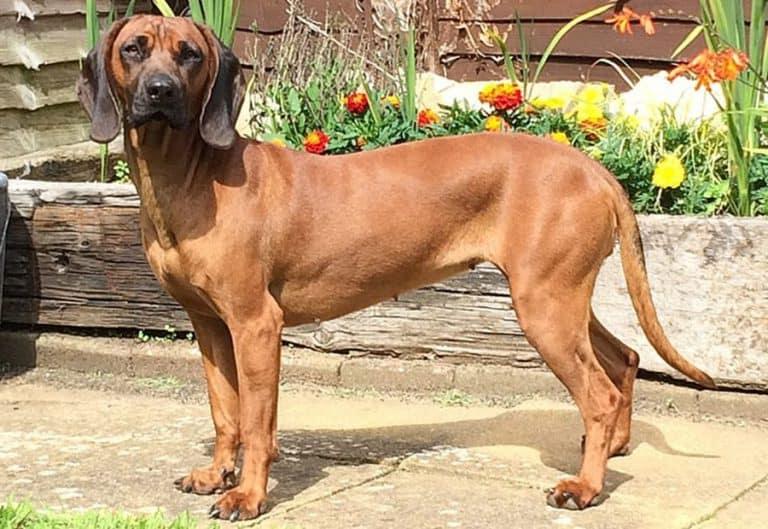
Nutritional Needs for Optimal Health
German Hounds thrive on a diet rich in protein and healthy fats. Look for dog food that lists meat as the primary ingredient, ensuring they get the nutrients needed for their active lifestyle. Omega-3 and Omega-6 fatty acids are also beneficial for maintaining a healthy coat and skin.
Foods to Include and Avoid
Include lean meats, fish, and vegetables in their diet. Avoid foods high in fillers like corn and soy, as well as those with artificial additives. Chocolate, grapes, and onions are toxic to dogs and should be kept out of reach.
Feeding Schedules and Portion Recommendations
Feed your German Hound twice a day, once in the morning and once in the evening. Portion sizes depend on their age, weight, and activity level, but generally, 1.5 to 2.5 cups of high-quality dry food per day is a good starting point. Adjust as needed to maintain a healthy weight.
Fun Facts and Trivia
Did you know that German Hounds have an incredible sense of smell, second only to the Bloodhound? This makes them excellent at tracking and hunting. They also have a unique bark, known as a “bracke,” which is distinct and easily recognisable.
Interesting Tidbits and Famous German Hounds
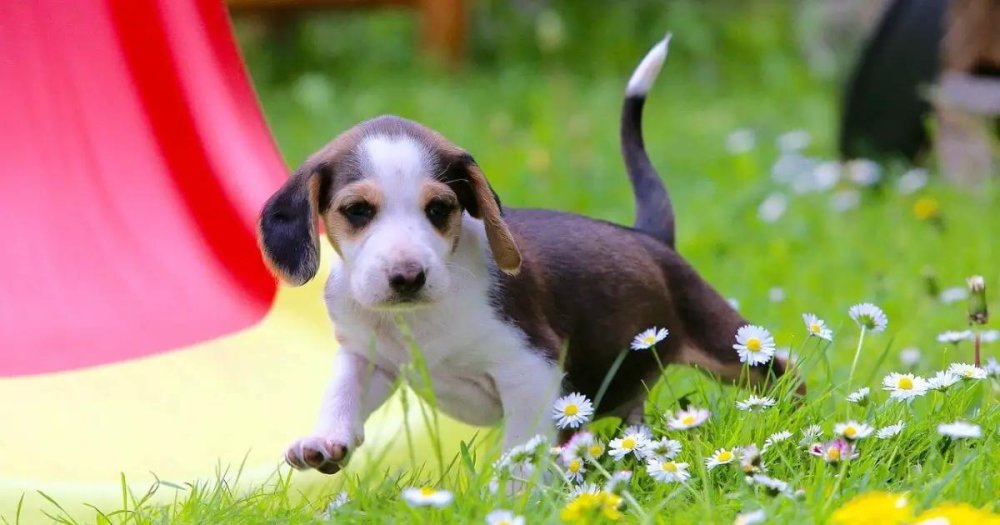
Interesting Tidbits about the Breed
German Hounds, or Deutsche Bracke, are not just known for their hunting prowess. They have a unique vocalisation called a “bracke,” which is a distinct bark used during hunts. This bark helps hunters locate them in dense forests. Another fun fact is their incredible sense of smell, which is second only to the Bloodhound. This makes them exceptional at tracking, a skill that has been honed over centuries.
Famous German Hounds in Media or History
While German Hounds may not be as famous in media as some other breeds, they have made their mark in history. During the 19th century, they were highly valued by German nobility for their hunting skills. Their reputation as reliable hunting companions was cemented by figures like Baron von Zedlitz, who played a significant role in their development. Although they might not have Hollywood fame, their historical significance in German hunting traditions is noteworthy.
Final Thoughts
The German Hound is a remarkable blend of tradition and versatility. With their keen sense of smell and friendly demeanor, they excel as both hunting companions and family pets. Their rich history and unique traits make them a fascinating breed, offering both challenges and rewards to their owners. Whether you’re drawn to their hunting prowess or their loyal companionship, the German Hound promises a fulfilling relationship. Consider welcoming this dynamic breed into your life and experience the joy they bring.
